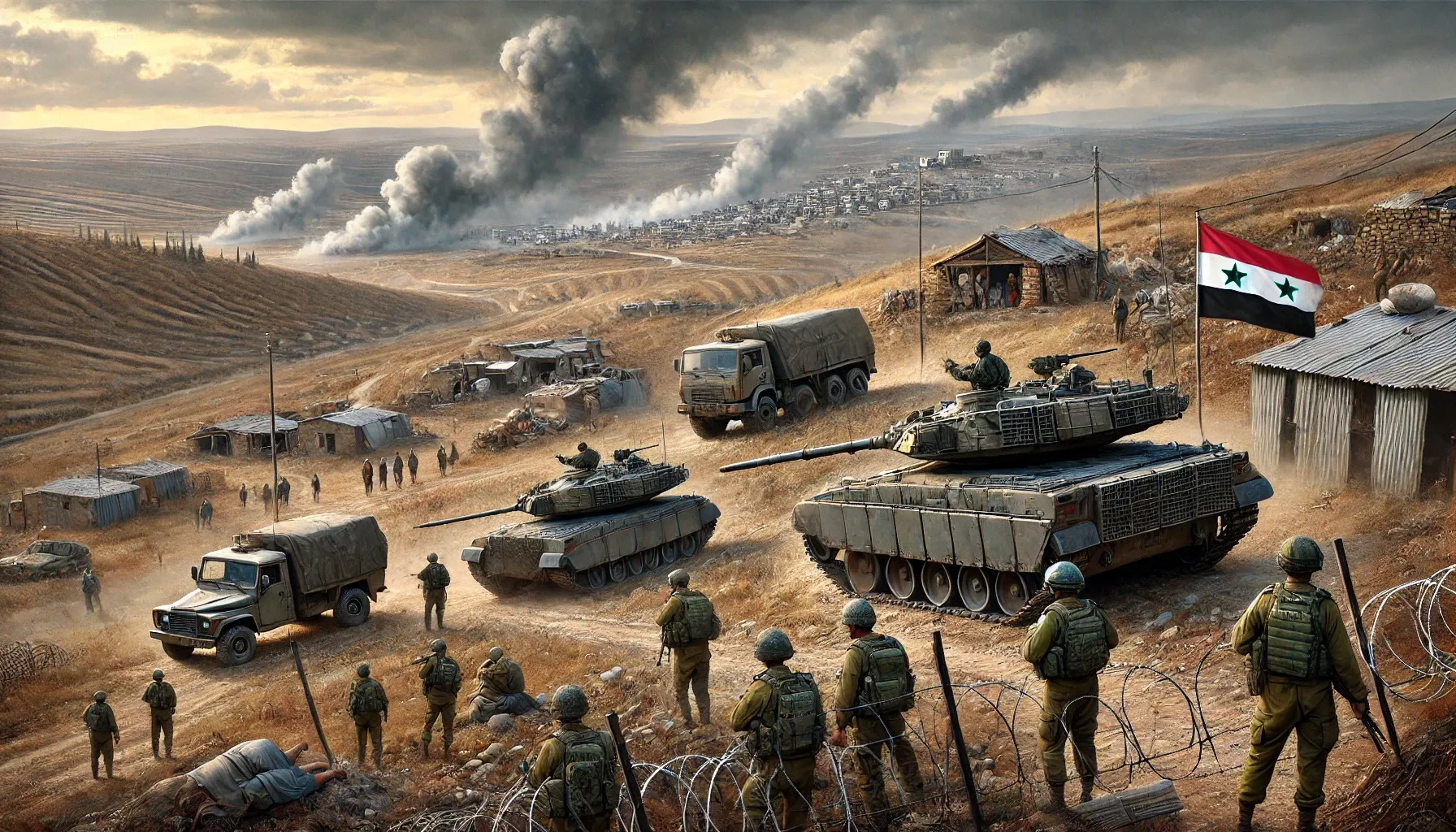In the wake of Assad's collapse, Israel conducts 250 air strikes, seizes Golan Heights territory, and imposes a buffer zone, reshaping Syria's post-regime future and escalating regional tensions.

In a dramatic escalation of regional tensions, Israel has launched a sweeping military campaign in Syria, conducting nearly 250 air strikes within 48 hours. The strikes, targeting strategic military sites, come amidst the collapse of Bashar al-Assad’s regime. Israel has simultaneously announced the creation of a “sterile defence zone” in southern Syria and seized key territories in the Golan Heights, citing national security concerns. This aggressive move highlights Israel’s intent to assert control and eliminate potential threats from hostile groups amidst the chaos of Syria’s political upheaval.
A Wave of Devastating Air Strikes
- The past 48 hours have witnessed one of the most intense military campaigns in recent history, with Israel conducting approximately 250 air strikes on Syrian soil.
- The Syrian Observatory for Human Rights (SOHR) reported that these strikes targeted critical military infrastructure, including:
- Airports and aircraft squadrons
- Radar stations and military signal installations
- Weapons depots and ammunition warehouses
- The strikes extended to major cities like Damascus, Homs, and Qamishli, crippling Syria’s remaining military capabilities.
- Israel Katz, Israel’s Defence Minister, stated:
“The [Israeli military] has been operating in Syria in recent days to strike and destroy strategic capabilities that threaten the State of Israel.”
Strategic Targets and Objectives
- The strikes specifically focused on preventing advanced weaponry from falling into the hands of opposition groups or foreign militias, such as Hezbollah and Iran-backed forces.
- According to Al Jazeera’s Resul Serdar, reporting from Damascus:
“Israel’s attacks on Syria are systematic... They are aiming to destroy Syria’s defence bases.” - Israel also struck naval assets. Defence Minister Katz confirmed:
“The navy operated last night to destroy the Syrian fleet with great success.”
Establishment of the ‘Sterile Defence Zone’
- Alongside the air strikes, Israel announced the creation of a “sterile defence zone” in southern Syria.
- This buffer zone aims to prevent the resurgence of terror groups near Israel’s border without necessitating a permanent Israeli presence.
- Israeli forces advanced into the demilitarised zone (DMZ), notably occupying an abandoned military post on Mount Hermon, a strategic location overlooking Damascus.
- This action effectively disregards the 1974 ceasefire agreement between Israel and Syria, which had established the DMZ as a neutral area under UN peacekeeping oversight.
Seizure of Golan Heights Territory
- Israeli Prime Minister Benjamin Netanyahu justified the land seizure by citing the collapse of the decades-old ceasefire agreement following the fall of the Assad regime.
- He declared:
“We will not allow any hostile force to establish itself on our border.” - Israeli forces seized parts of the Golan Heights, an area historically disputed since Israel captured it in the 1967 Six-Day War.
- In response, the Israeli military issued an urgent warning to Syrian villagers in:
- Ofaniya
- Quneitra
- Al-Hamidiyah
- Samdaniya al-Gharbiyya
- Al-Qahtaniyah
urging them to stay indoors for their safety.
Violations of International Agreements
- Israel’s incursions into the buffer zone violate the 50-year-old ceasefire agreement, raising international concerns about escalating tensions.
- According to UN peacekeepers, this move undermines efforts to maintain peace in the region.
- Al Jazeera’s senior analyst Marwan Bishara observed:
“Israel has taken the opportunity of Damascus being preoccupied with a change of regime to expand their presence in the Golan Heights and perhaps beyond. Israel called it temporary, but we know the implications when Israel says temporary... It’s been almost six decades in the West Bank.”
Strategic Advantages for Israel
- The fall of Assad presents a strategic opportunity for Israel to weaken its adversaries, including Iran and Hezbollah.
- Zein Basravi, reporting from the Lebanese-Syrian border, noted:
“They are getting what they have said they have wanted all along: weaker neighbours, so that they can push their regional agenda.” - This reflects a long-standing Israeli doctrine of maintaining regional military superiority by ensuring surrounding nations remain politically and militarily fractured.
International Reactions and Criticism
- The Council on American-Islamic Relations (CAIR) condemned the U.S. government’s continued support for Israel, stating:
“The Syrian people deserve to rebuild their country free from foreign occupation and violence.” - Despite widespread international criticism, Israel continues to justify its actions as necessary for national security.
Comparison to Historical Occupations
- Experts draw parallels between Israel’s current seizure of Syrian land and its enduring occupation of the West Bank.
- Bishara’s remark underscores this concern:
“Israel called it temporary, but we know the implications when Israel says temporary.”
Source: Al Jazeera





